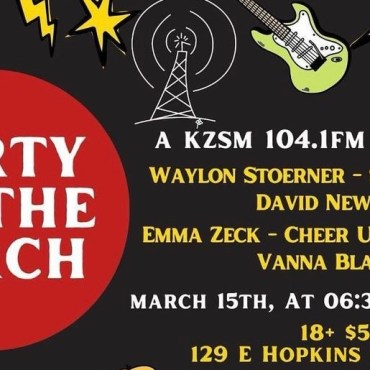Listeners:
Top listeners:
-
play_arrow
KTSW 89.9

By Paige Greene
Web Content Contributor
From jazz, rap, rock to even country, everyone likes different types of music, but music is not anything more than what scientists have called “organized sounds.” These sounds have an enormous effect on our brains.
Music releases a hormone called dopamine, a neurotransmitter which controls how we feel pleasure. Studies have also compared our use of music to the use of drugs, specifically cocaine, stating that at the end of the day we go to music to relax and put us in a good mood. One person may find jazz to be relaxing, and another may find rap to have the same effect.
According to The Pegasus, music can affect your ability to perceive time, reduce seizures, assist in repairing brain damage, evoke memories, improve communication and so much more.
UCF Professor and neuroscientist, Kiminobu Sugaya, says that in the late stages of Alzheimer’s patients they become typically unresponsive, but “once you put in the headphones that play [their favorite] music, their eyes light up.”
There is an old phrase that says “you can’t teach an old dog new tricks,” and while many people refute that, there is some truth behind the statement. According to The Pegasus, everyone is born with more neurons than actually needed, and by the age of eight, our brains dump a lot of these neurons that are deemed unnecessary.
This is why it is much easier to teach children new languages, how to read music and how to play instruments at such a young age. Not only does listening to music affect our brain, but so does playing it.
According to a study done by the University of Montreal, musicians have faster auditory and tactile reaction times. As we all get older our reaction times get slower. Researchers suggest that playing instruments could help this. Also, musicians have to process multiple things at once, improving their senses and can lead to superior multisensory skills.
When I’m stressed, I often turn to music as do many other people. This is because music has a unique connection to our emotions and can reduce stress and anxiety levels. Listening to slow music has a relaxing effect on the brain, and can affect the brain just as much as taking medication.
Whether you know it or not, listening to Drake in the car or even slightly knowing how to play the guitar has a huge effect on your brain.
For more information on how music affects your brain, watch this video by ASAP Science.
Featured image by Paige Greene.
Share this:
- Click to share on Twitter (Opens in new window)
- Click to share on Facebook (Opens in new window)
- Click to share on Tumblr (Opens in new window)
- Click to share on Pinterest (Opens in new window)
- Click to share on Reddit (Opens in new window)
- Click to email a link to a friend (Opens in new window)
- Click to print (Opens in new window)
dopamine Music Paige Greene science Your brain
Similar posts
This Blog is Propery of KTSW



Post comments (0)